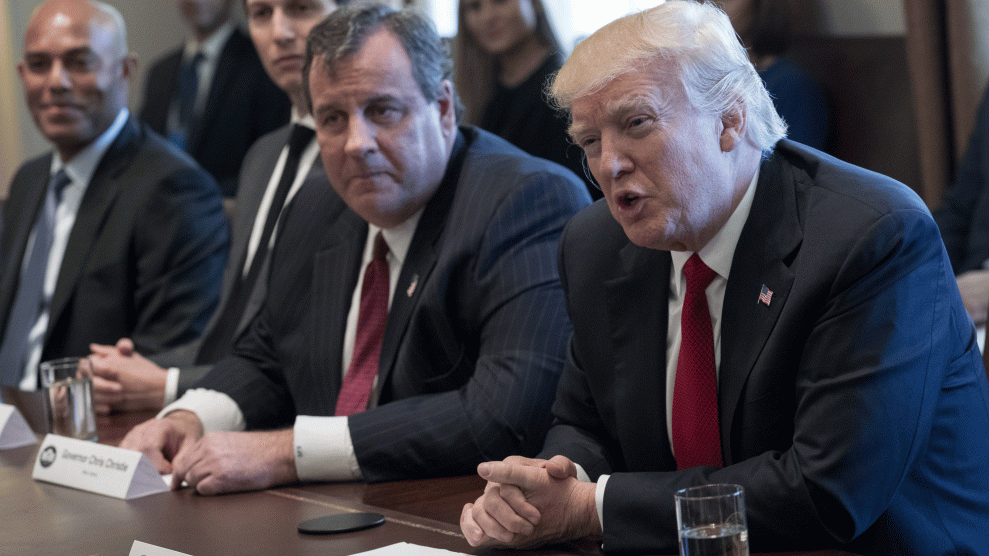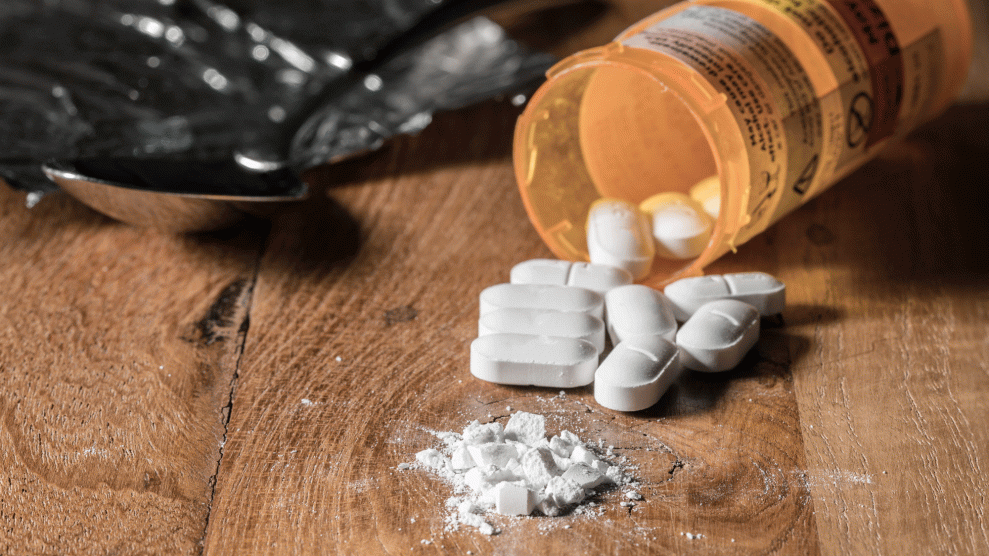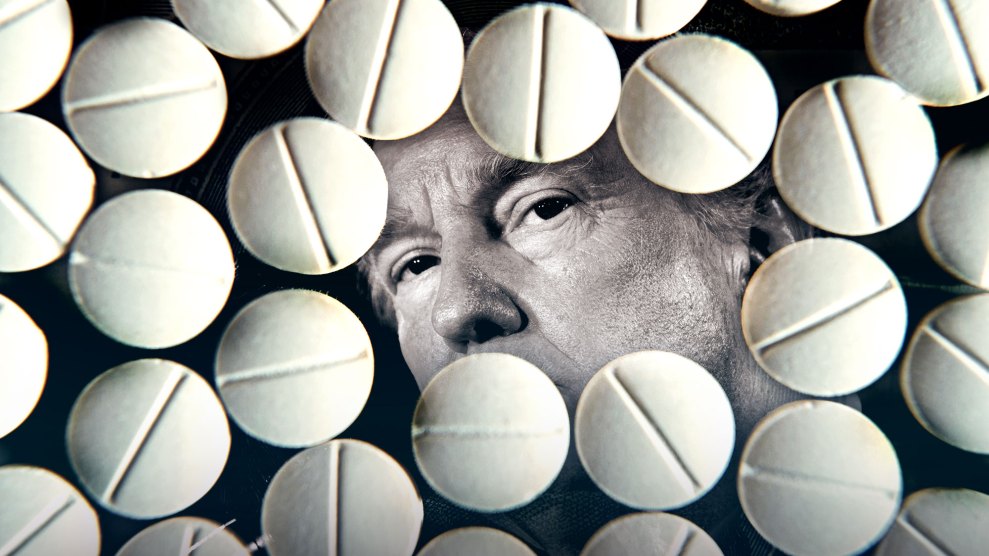
President Trump and New Jersey Gov. Chris Christie at a listening session on the opioid epidemic.Rex Features/AP
During his campaign, Trump said that his supporters were “always” bringing up opiate addiction. “We’re going to take all of these kids—and people, not just kids—that are totally addicted and they can’t break it,” he promised at a Columbus, Ohio town hall meeting last August. “We’re going to work with them, we’re going to spend the money, we’re gonna get that habit broken.”
He’s still talking a big game. At a much-hyped roundtable on Wednesday, the president announced a brand new commission to take on the issue, with New Jersey governor Chris Christie (R), who’s been outspoken on the need for more addiction services, at the helm. Sounds great, right?
Today’s EO established a commission on combating drug addiction and the opioid crisis. Watch listening session??https://t.co/ny9DG8XSrq pic.twitter.com/NZ3oSk2AJP
— Donald J. Trump (@realDonaldTrump) March 29, 2017
A few catches: The purpose of the commission, which will report to Trump’s son-in-law Jared Kushner, is to write a report by October of this year on the status of the epidemic and make recommendations for the future, after which it will cease to exist. The Surgeon General’s office under President Obama published a very similar report last November. Trump has yet to appoint a “drug czar”, or director of the Office of Drug Control Policy, which is charged with evaluating and overseeing federal anti-drug efforts.
Meanwhile, Trump has repeatedly proposed taking resources away from the programs that could stop the epidemic. For example:
- The president’s proposed 2017 budget would cut $100 million from the Substance Abuse and Mental Health Services Administration’s mental health block grants, which help provide substance abuse services across the country.
- His proposed 2018 budget would cut 16.2 percent of funding from the Department of Health and Human Services, the umbrella agency that funds things like SAMHSA and other mental health and substance abuse programs.
- The 2018 budget claims it would include a “$500 million increase above 2016 enacted levels to expand opioid misuse prevention efforts and to increase access to treatment and recovery services.” When pressed by Rep. Katherine Clark (D-Mass.), HHS Secretary Tom Price admitted that this $500 million is reference to funding from the 21st Century Cures Act, which Congress enacted under Obama signed into law late last year.
- Though it didn’t ultimately pass, Trump was hard-set on repealing the Affordable Care Act, which would have left nearly 3 million Americans without often life-saving addiction treatment.
The lack of substantive action on the issue is riling some politicians. “There is a massive gulf between President Trump’s promises to tackle this crisis and the policies this administration has proposed during his first two months in office,” said Sen. Jeanne Shaheen in a statement in response to Trump’s roundtable.
Or, as one congressional staffer recently asked in an email, “How many more people will die of opioid overdose while they’re pretending to care?”













